Escapes: Summer sun and uncertainty
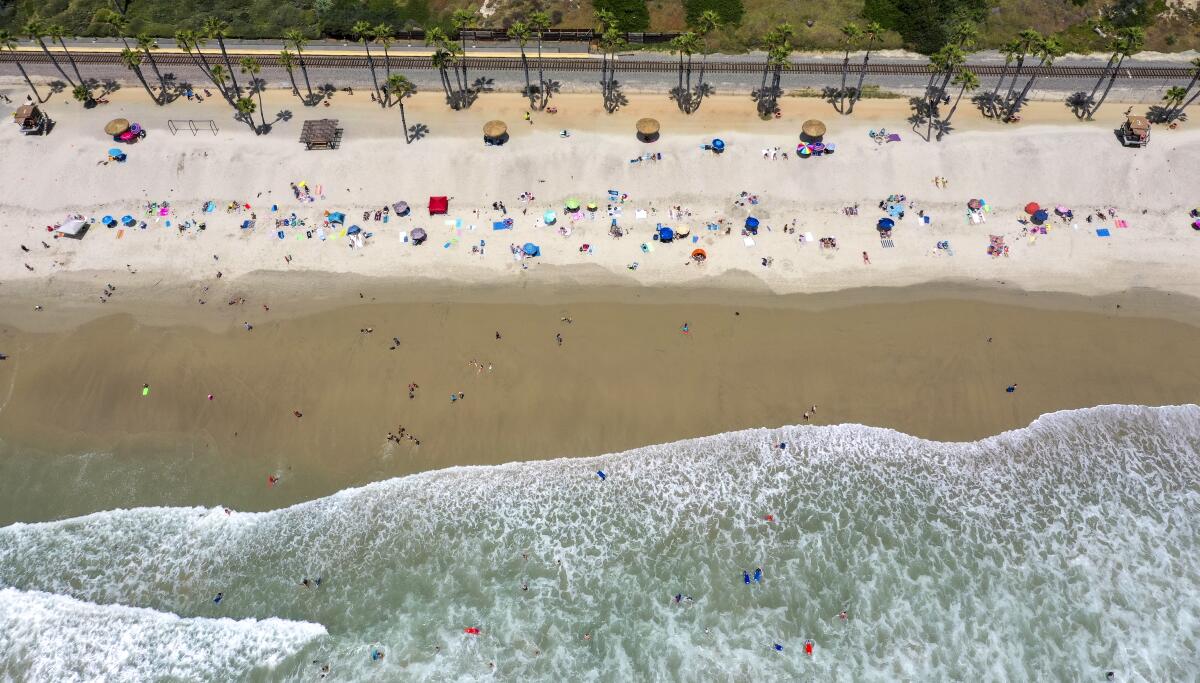
- Share via
Greetings, travelers and those who would like to be.
Here we stand at the outset of the most uncertain summer ever. Blue skies. Big waves forecast for the Fourth of July. Fireworks mostly canceled, miles of beaches closed for the holiday.
If you’re like me, you have a summer vacation in mind, a road trip. But every time you start to make a booking, authorities send out another batch of alarming pandemic case numbers.
Bars open, then close again. The governor orders masks for all in public places, and tightens limits on indoor operations. The airlines start requiring masks, too, which leads to this spot-on sentence in Catharine Hamm’s story about masks in the air: “[I]f there is one situation in which everyone is in the same boat, it’s in an airplane.”
Even as the discount offers pour in from hotels and airlines, public health officials in California keep telling us to put off nonessential trips. It’s a full-time job to keep up.
Get The Wild newsletter.
The essential weekly guide to enjoying the outdoors in Southern California. Insider tips on the best of our beaches, trails, parks, deserts, forests and mountains.
You may occasionally receive promotional content from the Los Angeles Times.
Or at least it is for me. Thanks to the work of our staffers and contributors around the West, you can zip through this newsletter in a few minutes and get a pretty good idea of things. Maybe you’ll even sort out that hypothetical trip for later this summer.
In SoCal, who’s open for the Fourth? Who’s closed?
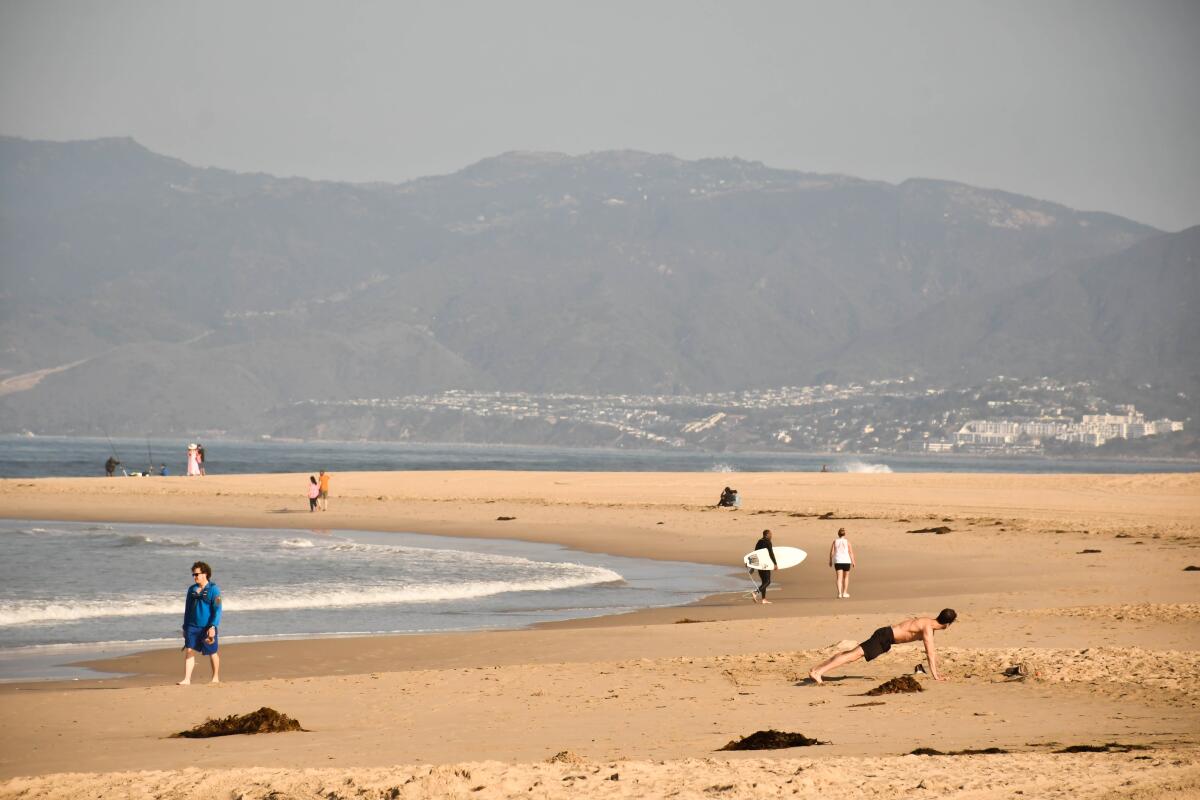
In the last days of June, millions of stir-crazy Californians started pondering where they wanted to spend their Independence Day weekend. And thousands of public officials thought: Please. Stay home. Or go somewhere else.
So L.A. County decided to close its beaches from Friday to Monday morning. And Ventura County did the same thing a day later.
Still, many other counties planned to keep their beaches open through the weekend, including Orange, San Diego and Santa Barbara. With the countdown growing short, it looks like there will be plenty of options, including hiking and lolling in city, county and national parks. But very few legal fireworks. Not many beach bonfires, either. And scores of bars, after a brief reopening, have been closed down by the state in Los Angeles and 18 other counties.
Banned by Europe
Turns out we won’t always have Paris. When the European Union looked around the world this week, trying to decide which travelers would be safest to admit as the continent opened to more visitors, the U.S. failed the test. Too many COVID-19 cases.
Only a few months before, when the worst of the pandemic was on the other side of the Atlantic, Europeans were failing our test. Now the Louvre and Disneyland Paris are both on the brink of reopening, and the Eiffel Tower, the real one, is open already (stairs and elevator), while we await word on when Anaheim’s Disneyland, the real one, will open its doors again.
One consolation for most Europe-loving Americans : We weren’t ready to sit that long in a plane anyway. And as it turns out, we may have enough facsimiles of Europe to keep ourselves amused for a while. Dinner at Olive Garden, anyone?
Another welcome mat missing
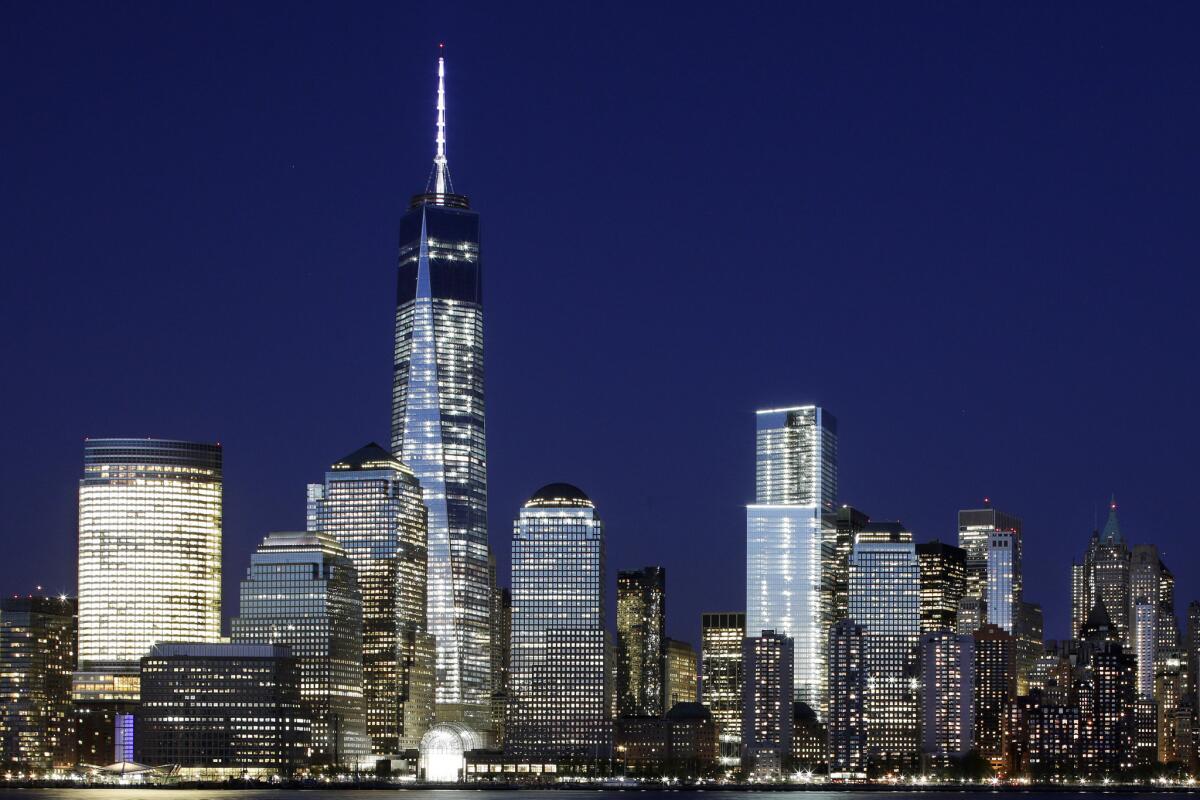
Anyway, Europe is just one of the places reluctant to see us. Another is New York, which has its own numerical formula to indicate which states’ travelers are riskiest to admit. We in California failed this test too, alongside more than a dozen other states, including Arizona and Nevada. If California stays in this category, travelers from here will need to quarantine for 14 days on arrival in New York.
One possible ray of hope: More coronavirus testing in airports could eliminate the need for 14-day quarantines in some cases. And companies at several airports in the U.S. and Europe have testing programs in the works.
The West beckons
None of the current crisis and confusion, however, has kept the tourism industry from easing into gear. As we get twitchier and twitchier, all sorts of offers are starting to show up, some implausible, some tempting. Bike tours (with new health measures) are one option. For a little while, there were hotel rooms on Catalina going for $4.98.
The parks gear up
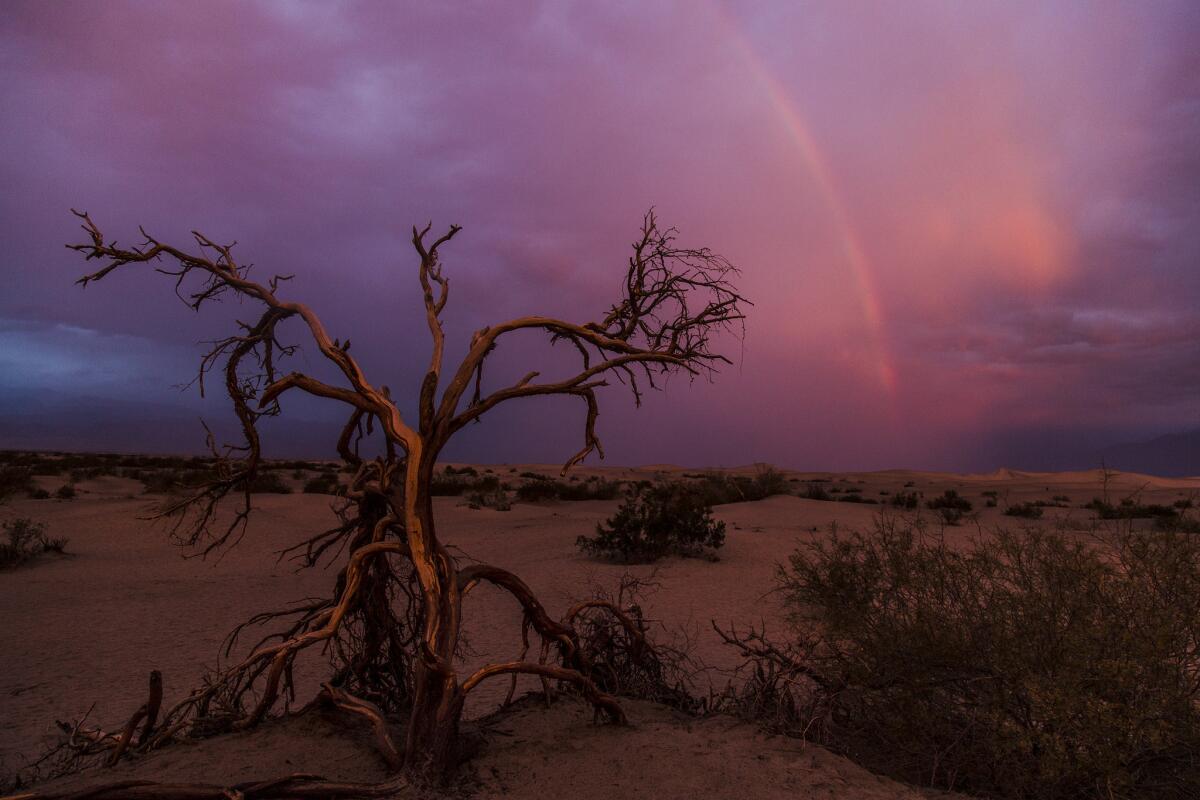
There won’t be many Yosemite campsites available until August at the earliest, but in many other California national parks, lodgings, campsites and iconic sights are opening up. Death Valley and Muir Woods in Marin County, for instance. To one degree or another, all of this state’s nine national parks and two national recreation areas are open.
Enjoying this newsletter? Consider subscribing to the Los Angeles Times
Your support helps us deliver the news that matters most. Become a subscriber.
Your ship has not come in. Maybe in September...
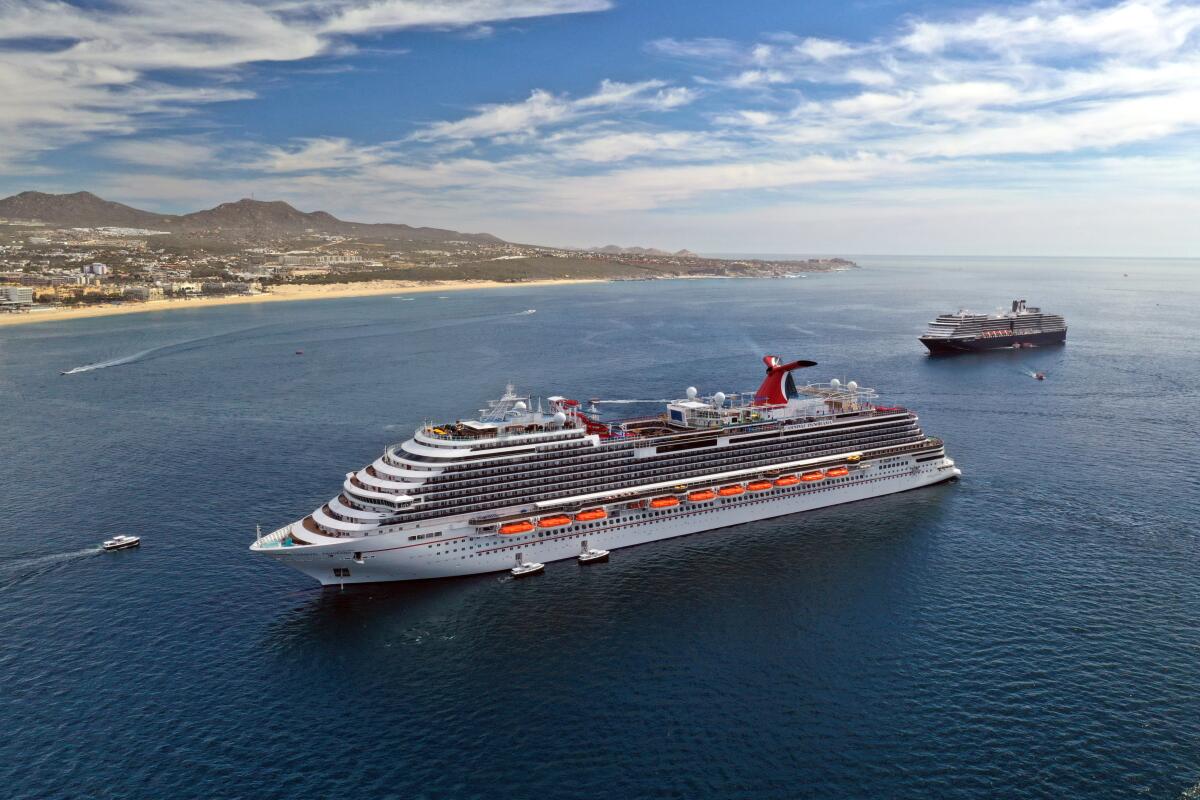
When last we saw the global cruise industry fully operational, it was early March. Now it seems the industry’s pandemic “pause” will last through the summer in U.S. ports. The cruise industry’s leading trade organization recently announced that sailings from U.S. ports would resume Sept. 15, if all goes well.
Get inspired to get away.
Explore California, the West and beyond with the weekly Escapes newsletter.
You may occasionally receive promotional content from the Los Angeles Times.
In Las Vegas and Hawaii, the scene changes daily
Since the first Las Vegas casinos reopened June 4, that city has been on a roller-coaster ride, with resorts opening, rules changing and public officials wringing their hands over tourists who scorn masks while infection numbers rise. Mary Forgione explored the Vegas mask policy with Jay Jones, who added this evolving report on what will be open there for the holiday weekend.
Jones also has been tracking Hawaii, which has been much more conservative than Nevada in dealing with the outbreak. Just a few days ago, Hawaii said it would ease rules that require tourists and locals to quarantine for 14 days when they enter the state. Starting Aug. 1, anyone who shows proof of testing negative for COVID-19 will be allowed to skip the mandatory two-week confinement.
What we’re reading
On Tuesday, the same day the European Union decided to keep most Americans away, American travel guru Rick Steves canceled all the remaining European tours that his company had scheduled for 2020.
“We had been hoping that autumn might bring a return of Americans to Europe … but now it’s clear that we’re not yet ready for that privilege,” Steves wrote in a blog post well worth reading. Instead of blaming Europe for excluding us, as some have done, he argues that Americans (and their leaders) need to “act more conscientiously and collectively to get our outbreak under control.”
For a deeper look into Steves’ thinking — including what he scribbles when he’s stoned — proceed directly to this hilarious, illuminating profile that ran in the New York Times Magazine last year.
End paper
Especially in these pandemic times, it’s a comfort to see some seasonal rituals remain strong. In summer we can still grill in the backyard, read more silly mysteries and eat more watermelon. And whether or not our leaders permit us to flock to the beaches, journalists like me will use the phrase “flock to the beaches.” Endlessly. Especially in the days before July 4.
So here’s my humble request to all word workers this holiday week: Can we retire “flock” until Labor Day? Unless, you know, pigeon attacks turn out to be our next crisis. At this point, anything is possible.
If you have something to say about travel, masks, flocks or anything you’d like to see in this newsletter, please drop us a line at travel@latimes.com. The conversation with readers is what keeps us going.
Stay safe and happy trails, even if they’re just in your backyard.
Sign up for The Wild
We’ll help you find the best places to hike, bike and run, as well as the perfect silent spots for meditation and yoga.
You may occasionally receive promotional content from the Los Angeles Times.




